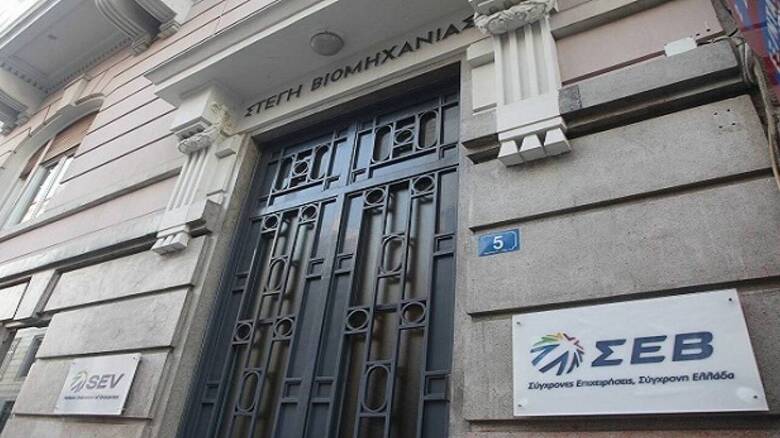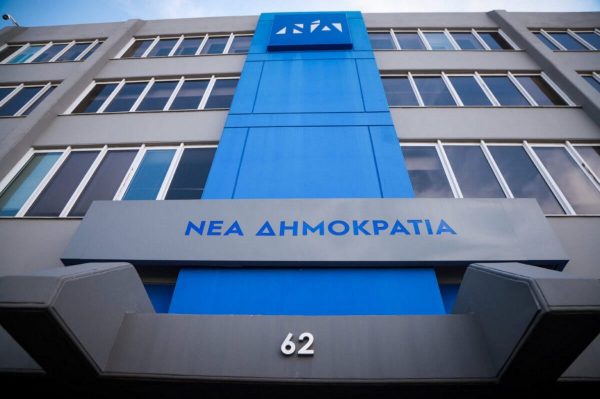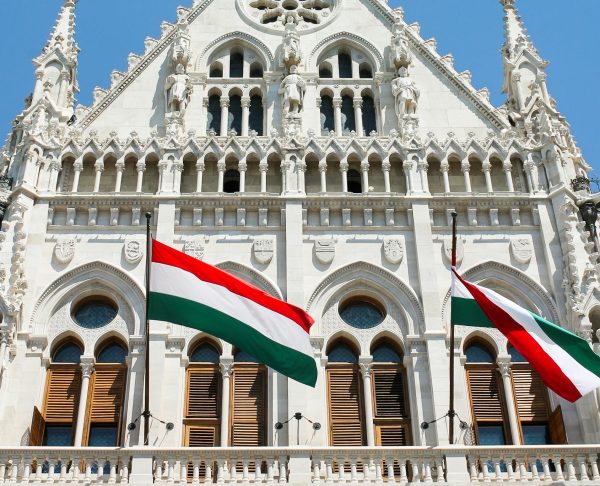
A letter to Prime Minister Kyriakos Mitsotakis was sent, on Thursday (19/1/2023), by the heads of the country’s industrial organizations, Hellenic Federation of Enterprises-SEV, Federation of Industries of Greece, UNICEN (Hellenic Union of Industrial Consumers of Energy), Hellenic Production, Attica-Piraeus Industries, Federation of Industries of Thessaly and Sterea Hellas, Thessaly federation of Indystries and Entreprise, Federation of Industries of Peloponnese and Western Greece, and Sterea Hellas Federation of Industries, about energy costs and the effects of the viability and competitiveness of businesses, and especially industry.
As they point out, the continuous effort of the state to mitigate the consequences of the energy crisis on businesses is recognized.
Efforts including (but not limited to) the financing tools for energy transition investments, the continued pressure on the EU and taking initiatives to find European solutions to the energy crisis, the clearing of τηε Special Fee for the Reduction of Pollutant Gas Emissions, the promotion of a framework for offshore wind farms, the efforts for rapid approval of the new compensation scheme for the cost of indirect emissions, the recognition of the importance of finding an effective compensation mechanism for the excessive energy costs for businesses.
But the intensity of the energy crisis is now such that it is creating an unprecedented existential crisis for businesses across the EU.
As is the case in the rest of the EU, businesses of the entire Greek territory and of all sizes are now experiencing a critical situation with objective challenges to their smooth operation or survival. The chronic lack of competitiveness of energy costs in Greece, combined with the current inability to predict it even on a short-term basis, work against the efforts of businesses to maintain the positive momentum they have managed to acquire in recent years.
Addressing the existential threat posed by the energy crisis to the industry is a critical priority in order to continue providing new jobs, additional public revenue, increased exports and support for local communities, especially in the region.
The measures they are asking for
The representatives of the industrial world propose specific and immediate measures, such as:
· Energy cost compensation, to competitively charge the electricity consumed by businesses, in order to ensure the required predictability. This can be done by adopting a target price (similar to other EU countries) and updating the subsidy at regular intervals.
Exclusion of bilateral PPAs (Purchase Power Agreements) from the compensation mechanism as they are a key tool for reducing energy costs in businesses.
· Acceleration of the approval of the state support mechanism for industrial PPAs (Green Pool) by the European Commission.
· Facilitation of businesses in the installation of RES systems, through the creation of electrical space, priority approval of connection requests, net metering and high voltage.
· Immediate upgrade of the infrastructure of the energy network, for better quality in the electricity supply and securing electrical space for new RES connections.
· Significant incentives to support a wider range of businesses in the green transition, in response to other countries’ investment policies, such as the US Inflation Reduction Act
The representatives of the industrial world are ready to continue the consultation with the State for the specialization and rapid implementation of these measures.
Latest News

PM Mitsotakis to Chair New Democracy’s Committee Meeting
Today’s meeting is seen as a crucial opportunity to halt internal disputes within ND and reaffirm unity within the party.

Trump Tariffs Jeopardize Growth: Piraeus Chamber of Commerce
The tariffs, aimed at reducing the U.S. trade deficit, are expected to have both direct and indirect effects on the European economy

EU Condemns Trump Tariffs, Prepares to Retaliate
As tensions escalate, the EU is expected to continue negotiations with Washington while preparing for potential economic retaliation.

The Likely Impact of Trump Tariffs on Europe and Greece
Trump tariffs are expected to negatively affect economic growth in the Eurozone while Greece's exports could take a hit.

Motor Oil Results for 2024: Adjusted EBITDA of 995 mln€; Proposed Dividend of 1.4€ Per Share
Adjusted EBITDA for 2024 was down 33% yoy. The adjusted profit after tax for 2024 stood at 504 million euros, a 43% decrease from the previous year

Cost of Living: Why Greece’s 3% Inflation Is Raising Alarm
Greece appears to be in a more difficult position when it comes to price hikes, just as we enter the era of Trump’s tariffs.

Fitch Ratings Upgrades the Four Greek Systemic Banks
NBG’s upgrade reflects the bank’s ongoing improvements in its credit profile, Fitch notes in its report, including strong profitability, a reduction in non-performing exposures (NPEs), and lower credit losses

Trump to Announce Sweeping New Tariffs Wednesday, Global Retaliation Expected
With Trump's announcement just hours away, markets, businesses, and foreign governments are bracing for the fallout of one of the most aggressive shifts in U.S. trade policy in decades.

Inflation in Greece at 3.1% in March, Eurostat Reports
Average inflation in the eurozone settled at 2.2%, compared to 2.3% in February

Greece’s Unemployment Rate Drops to 8.6% in February
Despite the overall decline, unemployment remains higher among women and young people.
























![ΕΛΣΤΑΤ: Αυξήθηκε η οικοδομική δραστηριότητα κατά 15,6% το Δεκέμβριο [πίνακες]](https://www.ot.gr/wp-content/uploads/2025/03/DSC9655-2-1024x569-1-90x90.jpg)

![Δασμοί Τραμπ: Οι επιπτώσεις στις ελληνικές εξαγωγές και στην ευρωπαϊκή οικονομία [γραφήματα]](https://www.ot.gr/wp-content/uploads/2023/10/ot_exagog_ISRAEL-600x352.png)















 Αριθμός Πιστοποίησης
Αριθμός Πιστοποίησης